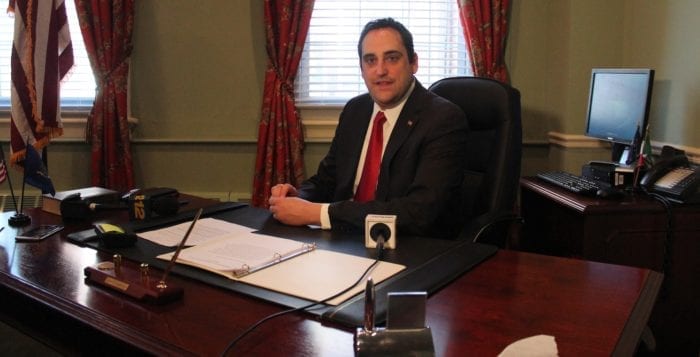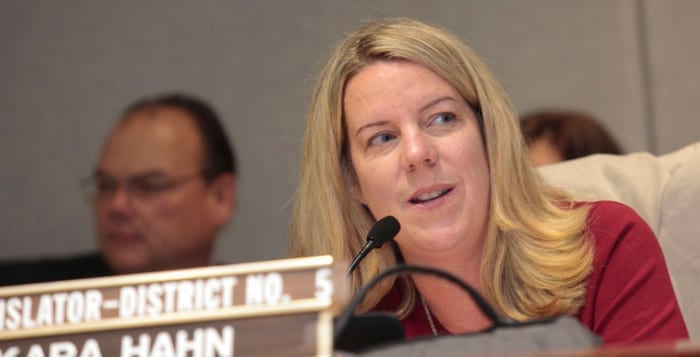The gun control debate in the United States has been fully underway seemingly for decades. Following the shooting in Parkland, Florida, at Marjory Stoneman Douglas High School Feb. 14 that left 17 people dead, the debate has taken on a different tone, and thanks to the activism of survivors, many of whom are high school students, the conversation hasn’t yet retreated to the back burner even a few news cycles removed from the shooting. In fact, the MSD students have ensured their cause will be garnering attention through at least April 20.
Two nationwide student walkouts have been planned and are being promoted on social media.
On March 14, the group Women’s March Youth EMPOWER is calling for students, teachers, school administrators and parents to walk out of schools for 17 minutes, in honor of the 17 Parkland victims,
beginning at 10 a.m. The purpose of the protest, according to a website promoting it, is to shine a light on Congress’ “inaction to do more than Tweet thoughts and prayers in response to the gun violence plaguing our schools and neighborhoods.” The walkout is being promoted on social media using the hashtag #ENOUGH.
“We want students who choose to be involved to have a focus for their efforts so the day and time will be meaningful.”
— Paul Casciano
On April 20, a similar protest is being planned to coincide with the anniversary of the mass shooting at Columbine High School in Colorado in 1999. The organizers of this event, simply called National School Walkout, are also calling for those in school buildings to stand up and exit at 10 a.m. for 17 minutes of silence, followed by an “open mic” session in which students will be encouraged to voice opinions. The organizers of this walkout envision a day-long event concluding at the end of the school day.
“We’re protesting the violence in schools and the lack of change that has occurred to stop that,” the website created for the event says. “This issue needs constant attention if we hope to change anything, so multiple events on multiple days is a productive way to help fight for our cause, a safer country.”
Local school districts and students are addressing if or how the marches might play out here, with logistics and safety being of the utmost concern for administrators.
In Port Jefferson School District, administration is taking a hands-on approach in handling a potential protest. Superintendent Paul Casciano said the district’s principals are working with students and teachers to finalize plans.
“We want students who choose to be involved to have a focus for their efforts so the day and time will be meaningful,” he said. He added that when plans are established the district will make them public to ensure parents are informed about what might take place.
Ben Zaltsman, student body president at Port Jefferson High School, shared details about plans for protest, which will take on a tone meant to honor victims rather than a political message. He said initially students expressed a desire to walk out among themselves, but that administration found out and was concerned about safety hazards associated with leaving the building. Instead of a walkout, the district and student
government got together to formulate a plan to commemorate the day and participate in the national movement.
“Something like this is not disruptive. I don’t think it’s political.”
— Ben Zaltsman
Zaltsman, who’s heading to Rice University in the fall, said he and the rest of the high school’s student government met with administration and agreed on a 17-minute ceremony in the auditorium March 14.
“The April one seems like it’s more political — this is to honor and remember Parkland victims,” Zaltsman said of the two rallies. He said he’s not sure how many students might participate in the voluntary demonstration, which will take place during fourth period, but he expects it will be many. He also said it’s possible students will decide to walkout on their own anyway, but that he hadn’t heard of anyone planning to do so.
“My mom said she knew I was already participating and I have a younger brother who is expected to participate too,” Zaltsman said when asked if he’d discussed walking out with his parents. “Something like this is not disruptive. I don’t think it’s political.”
Comsewogue School District Deputy Superintendent Jennifer Quinn said in an email students were working on organizing a demonstration, though the district did not provide specifics in time for print.
Parents in the district have strong opinions on the idea of their kids participating in a political protest
during school hours in a discussion on a Facebook page comprised of Comsewogue community members.
“Instead of walking out and protesting, walk into the cafeteria and talk to kids you normally wouldn’t,” poster Caitlin Mae, a district employee, said while expressing skepticism that a walkout would accomplish much. “Befriend those who don’t have friends. Scold those students who encourage bullying.”
Jessica Glass, the mother of a junior at the high school, said she had discussed the possibility of walking out with her daughter.
“I would be proud of my kids if they had strong views and chose to express themselves in this way.”
— Rachel Begley
“She feels very strongly about reform and is interested in all the aspects of how to bring it about,” she said. “Is gun reform the answer? Is mental health awareness the answer? Is more teacher/parent awareness of students the answer? Is a walk out the best idea? She doesn’t have the answer, but she feels that students in a movement would bring awareness to an issue on a higher level than the awareness is now. That’s what’s important to her, raising awareness in many ways for change.”
Several others said they viewed students walking out of school at a set date and time as a security concern in and of itself.
“We are all worried about security, I don’t think a walkout is such a good idea,” Edward Garboski said. “By doing so we are allowing our kids to become perfect targets. I would hope our parents see the same thing I see. My kids will not walk out of school.”
Others applauded the idea of students being politically and civically engaged.
“I would be proud of my kids if they had strong views and chose to express themselves in this way,” Rachel Begley said. “They don’t have a vote, so this is one way of making themselves seen and heard.”
While the federal government deals with the political gridlock long associated with gun control, New York is working on action to at least improve safety in the short term, though not to address gun laws.
“Every New Yorker and every American is outraged by the senseless violence that is occurring in schools throughout the country,” state Senate Majority Leader John Flanagan (R-East Northport) said in a statement Feb. 28. The state Senate approved a series of bills March 5 that include more funding for security cameras, armed police officers or security personnel for districts that want it, panic buttons, active shooter drills, better emergency response plans, hardening of school doors and more. A package of gun control measures proposed by Senate Democrats was rejected.















